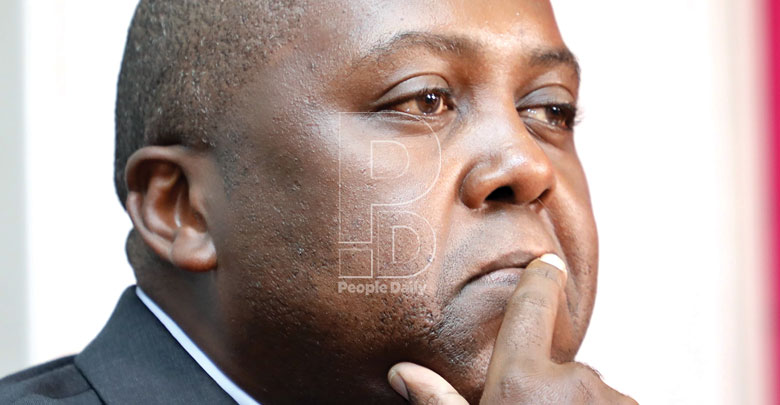Telkom accuses Safaricom of seeking to derail merger plan

@faminga
Telkom-Kenya merger with Airtel could take longer after Safaricom appeared to question the planned link-up only three weeks after Parliament tasked the Ethics and Anti Corruption Commission (EACC) to open fresh investigations into how the deal was brokered.
Speaking yesterday, Telkom-Kenya managing director Mugo Kibati took issue with Safaricom, saying the merger is a business deal meant to enhance scale and enable the sector have one last stab at a competitive environment.
“Safaricom, which controls more than 90 per cent of the industry’s value and revenue share, said it had written to the Communications Authority of Kenya (CA), to urge it not to approve the intended merger of businesses, as it had concerns that it wanted addressed first,” he said.
Kibati was reacting to Safaricom acting chief executive Michael Joseph who said during the firms AGM that it had concerns “about the merger between Airtel and Telkom”. He said the dominant telco will not only stymie the progress made in the merger process but also delay a balance with respect to competition in the sector.
CA sector statistics report for the third quarter of 2018/2019 says Safaricom still holds the lion share, which has dropped to 62.4 per cent from 63.3 per cent recorded in the preceding quarter.
Airtel Kenya reported a market share jump by 2.7 per cent to 26.1 per cent. Telkom Kenya dropped shareholding to 7.9 per cent from nine per cent in the quarter under review while Finserve’s Equitel came in fourth with 3.4 per cent.
“We have no quarrel at all with our colleagues at Safaricom, we are simply trying to restructure and improve our own business,” said Kibati, adding: “It is unfortunate, however, that Safaricom now wants to delay this process that seeks to provide customers with more credible options.”
Kibati said the new development is thrusting the telco sector into a possible monopoly with negative impact on consumers and the economy. “The telco sector will not grow and expand as it should. This could lead to Kenya’s telco sector losing out on the tag of the region’s telecommunications hub,” he said.
Kibati said the transaction between Telkom and Airtel is still ongoing, but one that has so far followed due legal and regulatory processes including the formal requests placed with all requisite regulators on request to merge certain business units, whose approvals the firms now await.
“We have given the EACC all the information they have requested and will continue to cooperate on the matter up until a substantive conclusion is reached,” said Mugo.
However, in a phone conversation, Safaricom acting Chief Executive Officer Michael Joseph denied claims they are out to sabotage the planned merger.
Regulatory processes
“It’s not true. We said we have some concerns about the merger and we submitted those concerns to the Communications Authority, that’s it. We can only submit our concern but since there is no Board of Directors at the Communication Authority we have to just wait and see.”
The planned merger followed a decision by Airtel Networks Kenya to buy Telkom Kenya. In July 2019, the CA gazetted the government’s intention to have the two telcos merge.
The notice said the merger was in exchange for Telkom Kenya gaining a shareholding in Airtel for the purpose of creating an integrated telecommunications company with mobile, enterprise and wholesale divisions.
The parties had indicated that upon approval of the proposed merger, Airtel will be renamed Airtel- Telkom, while Telkom will continue operating in the ICT sector- providing certain other services to select customers.
In the past, Airtel has threatened to exit the Kenyan market if new regulations are not passed to curb what the firm’s chief executive Adil El Youssefi called Safaricom’s dominance.
He said in September 2015 that the “anti-competitive behaviour” by the market leader had condemned competitors to losses, claiming even Essar and France Telecom hoped out of Kenya over the same concerns.










